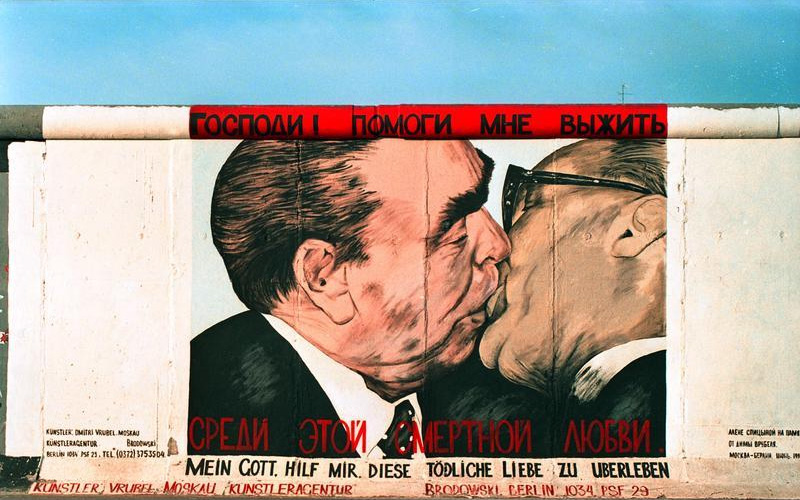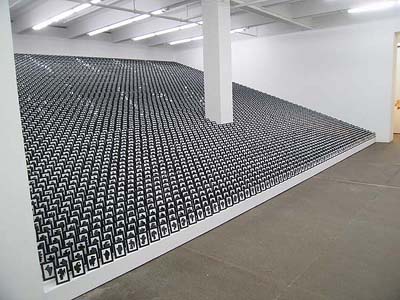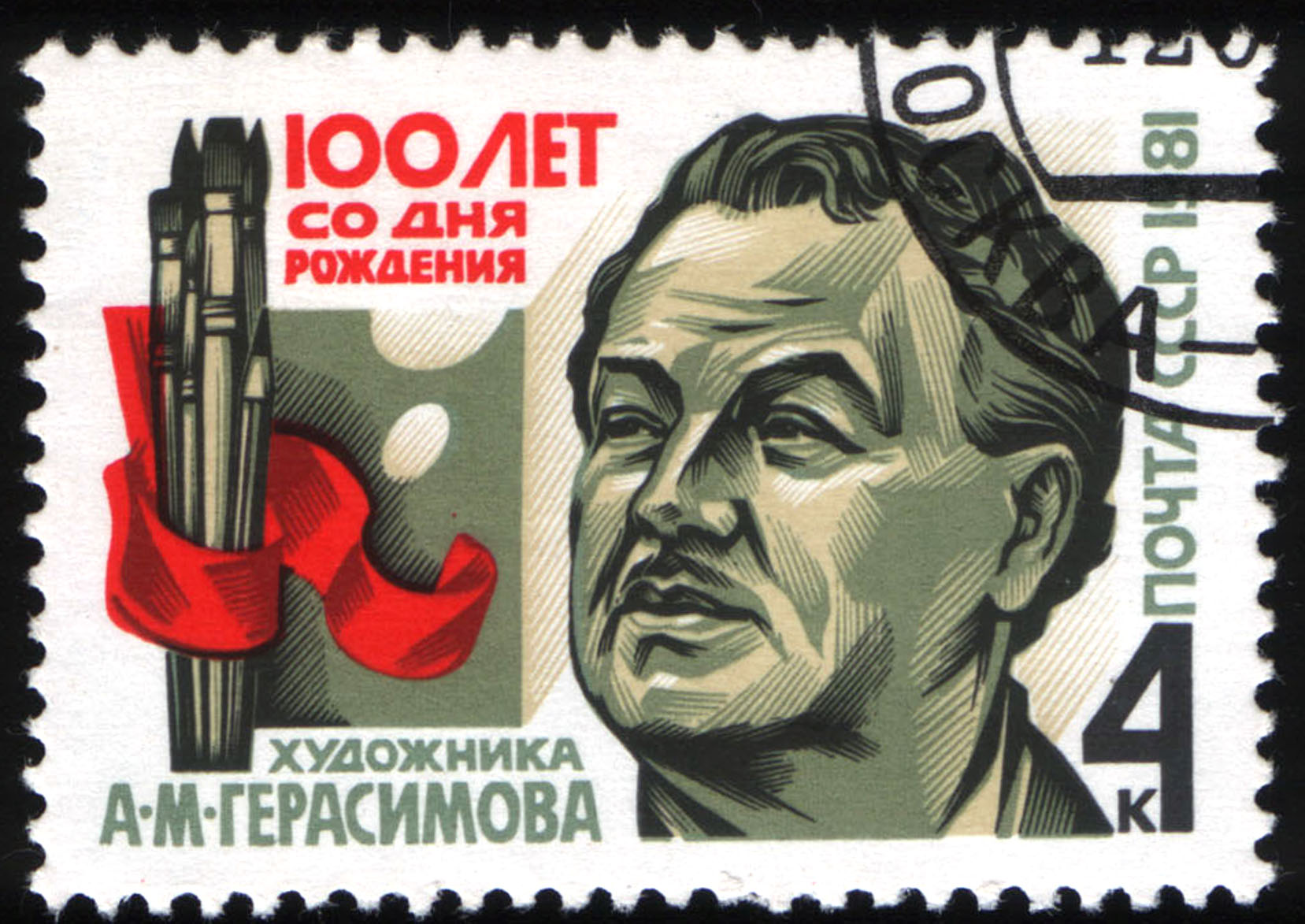|
Moscow Conceptualists
The Moscow Conceptualist, or Russian Conceptualist, movement began with the Sots art of Komar and Melamid in the early 1970s, and continued as a trend in Russian art into the 1980s. It attempted to subvert socialist ideology using the strategies of conceptual art and appropriation art. It was an artistic counterpoint to Socialist Realism, and the artists experimented aesthetically in a wide range of media, including painting, sculpture, performance, and literature. The central figures were Dmitri Prigov, Ilya Kabakov, Irina Nakhova, Viktor Pivovarov, Eric Bulatov, Andrei Monastyrski and Komar and Melamid. Mikhail Epstein, in ''After the Future: The Paradoxes of Postmodernism and Contemporary Russian Culture'' (1995) explains why conceptualism is particularly appropriate to the culture and history of Russia, but also how it differs from Western Conceptualism: Epstein (1995) quotes Ilya Kabakov: The Moscow Conceptualist artists faced difficulties exhibiting their work in the cu ... [...More Info...] [...Related Items...] OR: [Wikipedia] [Google] [Baidu] |
Sots Art
Often referred to as “Soviet Pop Art”, Sots Art or soc art (russian: Соц-арт, short for Socialist Art) originated in the Soviet Union in the early 1970s as a reaction against the official aesthetic doctrine of the state— socialist realism, which was marked by reverential depictions of workers, peasants living happily in their communes, and, during Stalinism, a young, fit Joseph Stalin. Vitaly Komar and Alexander Melamid are credited with the invention of the term "Sots Art"; in an analogy with the Western pop art movement, which incorporated the kitchy elements of the Western mass culture, sots art capitalized on the imagery of the Socialist mass culture. According to Arthur Danto, Sots Art's attack on official styles is similar in intent to American pop art and German capitalist realism.Arthur Coleman Danto, ''After the End of Art: contemporary art and the pale of history'', Princeton University Press, 1997, p126. Artists * Grisha Bruskin * Eric Bulatov * Vi ... [...More Info...] [...Related Items...] OR: [Wikipedia] [Google] [Baidu] |
Soviet Union
The Soviet Union,. officially the Union of Soviet Socialist Republics. (USSR),. was a transcontinental country that spanned much of Eurasia from 1922 to 1991. A flagship communist state, it was nominally a federal union of fifteen national republics; in practice, both its government and its economy were highly centralized until its final years. It was a one-party state governed by the Communist Party of the Soviet Union, with the city of Moscow serving as its capital as well as that of its largest and most populous republic: the Russian SFSR. Other major cities included Leningrad (Russian SFSR), Kiev (Ukrainian SSR), Minsk ( Byelorussian SSR), Tashkent (Uzbek SSR), Alma-Ata (Kazakh SSR), and Novosibirsk (Russian SFSR). It was the largest country in the world, covering over and spanning eleven time zones. The country's roots lay in the October Revolution of 1917, when the Bolsheviks, under the leadership of Vladimir Lenin, overthrew the Russian Provisional Government ... [...More Info...] [...Related Items...] OR: [Wikipedia] [Google] [Baidu] |
Russian Contemporary Art
Russian(s) refers to anything related to Russia, including: *Russians (, ''russkiye''), an ethnic group of the East Slavic peoples, primarily living in Russia and neighboring countries *Rossiyane (), Russian language term for all citizens and people of Russia, regardless of ethnicity *Russophone, Russian-speaking person (, ''russkogovoryashchy'', ''russkoyazychny'') * Russian language, the most widely spoken of the Slavic languages * Russian alphabet * Russian cuisine *Russian culture *Russian studies Russian may also refer to: *Russian dressing *''The Russians'', a book by Hedrick Smith *Russian (comics), fictional Marvel Comics supervillain from ''The Punisher'' series * Russian (solitaire), a card game * "Russians" (song), from the album ''The Dream of the Blue Turtles'' by Sting *"Russian", from the album ''Tubular Bells 2003'' by Mike Oldfield *"Russian", from the album '' '' by Caravan Palace * Nik Russian, the perpetrator of a con committed in 2002 *The South African name ... [...More Info...] [...Related Items...] OR: [Wikipedia] [Google] [Baidu] |
Soviet Art
Soviet art is a form of visual art produced after the October Socialist Revolution of 1917 in Soviet Russia (1917—1922) and the Soviet Union (1922—1991), when the short-lived Russian Republic was overthrown and replaced. This led to an artistic and cultural shift within Russia and the Soviet Union as a whole, including a new focus on Socialist Realism in officially approved art. Soviet art of the post-revolutionary period The consolidation of Soviet art was preceded throughout the 1920s by an era of intense ideological competition between different artistic groupings, with members each striving to ensure their own views would have priority in determining the forms and directions in which Soviet art would develop; seeking to occupy key posts in cultural institutions and to win the favor and support of the authorities. This struggle was made even more bitter by the growing crisis of radical ''leftist'' art. At the turn of the 1930s, many ''avant-garde'' tendencies that ha ... [...More Info...] [...Related Items...] OR: [Wikipedia] [Google] [Baidu] |
University Of Massachusetts Press
The University of Massachusetts Press is a university press that is part of the University of Massachusetts Amherst. The press was founded in 1963, publishing scholarly books and non-fiction. The press imprint is overseen by an interdisciplinary faculty committee. Juniper Prizes The press also publishes fiction and poetry through its annual Juniper Prizes.Herman (2007) The Juniper Prize was named in honor of local poet Robert Francis and his house ('Fort Juniper'). The Juniper Prizes include: * 2 prizes for poetry: one for a previously published poet, one for a poet not previously published * 2 prizes for fiction: one for a novel, one for a collection of short stories * creative non-fiction The poetry award began in 1975, the fiction award in 2004, and the award for creative non-fiction in 2018. Notes References * External linksUniversity of Massachusetts Press official website Press Press may refer to: Media * Print media or news media, commonly called "the press" * P ... [...More Info...] [...Related Items...] OR: [Wikipedia] [Google] [Baidu] |
Neo-conceptual Art
Neo-conceptual art describes art practices in the 1980s and particularly 1990s to date that derive from the conceptual art movement of the 1960s and 1970s. These subsequent initiatives have included the Moscow Conceptualists, United States neo-conceptualists such as Sherrie Levine and the Young British Artists, notably Damien Hirst and Tracey Emin in the United Kingdom, where there is also a Stuckism counter-movement and criticism from the 1970s conceptual art group Art and Language. History Many of the concerns of the "conceptual art" movement proper have been taken up by many contemporary artists since the initial wave of conceptual artists. While many of these artists may not term themselves "conceptual artists", ideas such as anti-commodification, social and/or political critique, digital art, and ideas/information as medium continue to be aspects of contemporary art, especially among artists working with computer art, installation art, performance art, net.art and electroni ... [...More Info...] [...Related Items...] OR: [Wikipedia] [Google] [Baidu] |
Soviet Nonconformist Art
The term Soviet Nonconformist Art refers to Soviet art produced in the former Soviet Union from 1953 to 1986 (after the death of Joseph Stalin until the advent of Perestroika and Glasnost) outside of the rubric of Socialist Realism. Other terms used to refer to this phenomenon are counterculture, "underground art" or "unofficial art". History 1917–1932 From the time of the Bolshevik Revolution in 1917 until 1932, the historical Russian avant-garde flourished and strove to appeal to the proletariat. However, in 1932 Stalin's government took control of the arts with the publication of "On the Reconstruction of Literary-Artistic Organizations"; a decree that put artists' unions under the control of the Communist Party. Two years later, Stalin instituted a policy that unified aesthetic and ideological objectives, which was called Socialist Realism, broadly defined as art that was, "socialist in content and realist in form." Moreover, the new policy defined four categories of unacc ... [...More Info...] [...Related Items...] OR: [Wikipedia] [Google] [Baidu] |
Bulldozer Exhibition
The Bulldozer Exhibition (russian: link=no, Бульдозерная выставка) was an unofficial art exhibition on a vacant lot in the Belyayevo urban forest ( Bitsa Park) by Moscow and Leningrad avant-garde artists on 15 September 1974. The exhibition was forcefully broken-up by a large police force that included bulldozers and water cannons, hence the name. Since the 1930s in the Soviet Union Socialist realism had been the one of the artstyles largely supported by the state. All other forms of art were forced underground and sometimes prosecuted. One of the attempts to break out of the underground to more public view was the Belyayevo exhibition. It was organised by three underground artists, Oscar Rabin (artist), Youri Jarkikh (Jarki) and Alexander Gleser. Among the artists taking part in the exhibition were Evgeny Rukhin, Valentin Vorobyov (b. 1938), Vladimir Nemukhin, Lidiya Masterkova, Borukh Steinberg, Nadegda Elskaja, Alexander Rabin, Vasilij Sitnikov, Ver ... [...More Info...] [...Related Items...] OR: [Wikipedia] [Google] [Baidu] |
Nikita Khrushchev
Nikita Sergeyevich Khrushchev (– 11 September 1971) was the First Secretary of the Communist Party of the Soviet Union from 1953 to 1964 and chairman of the country's Council of Ministers from 1958 to 1964. During his rule, Khrushchev stunned the communist world with his denunciation of his predecessor Joseph Stalin's crimes, and embarked on a policy of de-Stalinization with his key ally Anastas Mikoyan. He sponsored the early Soviet space program, and enactment of moderate reforms in domestic policy. After some false starts, and a narrowly avoided nuclear war over Cuba, he conducted successful negotiations with the United States to reduce Cold War tensions. In 1964, the Kremlin leadership stripped him of power, replacing him with Leonid Brezhnev as First Secretary and Alexei Kosygin as Premier. Khrushchev was born in 1894 in a village in western Russia. He was employed as a metal worker during his youth, and he was a political commissar during the Russian Civil Wa ... [...More Info...] [...Related Items...] OR: [Wikipedia] [Google] [Baidu] |
General Secretary Of The Communist Party Of The Soviet Union
A general officer is an officer of high rank in the armies, and in some nations' air forces, space forces, and marines or naval infantry. In some usages the term "general officer" refers to a rank above colonel."general, adj. and n.". OED Online. March 2021. Oxford University Press. https://www.oed.com/view/Entry/77489?rskey=dCKrg4&result=1 (accessed May 11, 2021) The term ''general'' is used in two ways: as the generic title for all grades of general officer and as a specific rank. It originates in the 16th century, as a shortening of ''captain general'', which rank was taken from Middle French ''capitaine général''. The adjective ''general'' had been affixed to officer designations since the late medieval period to indicate relative superiority or an extended jurisdiction. Today, the title of ''general'' is known in some countries as a four-star rank. However, different countries use different systems of stars or other insignia for senior ranks. It has a NATO rank sc ... [...More Info...] [...Related Items...] OR: [Wikipedia] [Google] [Baidu] |
Manege Affair
The Manege Affair was an episode when Nikita Khrushchev together with other Party leadership visited an anniversary art exhibition "30 Years of the Moscow Artists' Union" at Moscow Manege on December 1, 1962. It resulted in Khruschev's angry rant against "filth, decadence and sexual deviations" he saw along with the traditional works of Socialist Realism. After the visit, he arranged a campaign to tighten the grip of the Party over culture. This has been described as the beginning of the end of the Cultural Thaw in the Soviet Union. The episode is covered in detail in the book ''Unofficial Art in the Soviet Union'' by Paul Sjeklocha and Igor Mead and in other publications. Khrushchev's anger was fueled further when he was informed about a recent KGB takedown on a clandestine group of homosexual intellectuals, who worked for the '' Iskusstvo'' (''The Art'') publishing house. Speaking to Ely Bielutin, the exhibition host, Khrushchev said: [...More Info...] [...Related Items...] OR: [Wikipedia] [Google] [Baidu] |
Mikhail Epstein
Mikhail Naumovich Epstein (also transliterated Epshtein; russian: Михаи́л Нау́мович Эпште́йн; born 21 April 1950) is a Russian-American literary scholar and essayist who is Samuel Candler Dobbs Professor of Cultural Theory and Russian Literature at Emory University, Atlanta, US. He moved there from Moscow, USSR, in 1990. He has also worked as a Professor of Russian and Cultural Theory at Durham University, UK, from 2012 to 2015, where he was the founder and Director of the Centre for Humanities Innovation at Durham University. His areas of specialization include postmodernism, cultural and literary theory; the history of Russian literature and intellectual history; contemporary philosophical and religious thought, and ideas and electronic media. Epstein is also an expert on Russian philosophy of the 19th and 20th centuries and on thinkers like Nikolai Berdyaev. He writes essays on cultural, social, ethical and international issues. Biography Epstein was ... [...More Info...] [...Related Items...] OR: [Wikipedia] [Google] [Baidu] |



